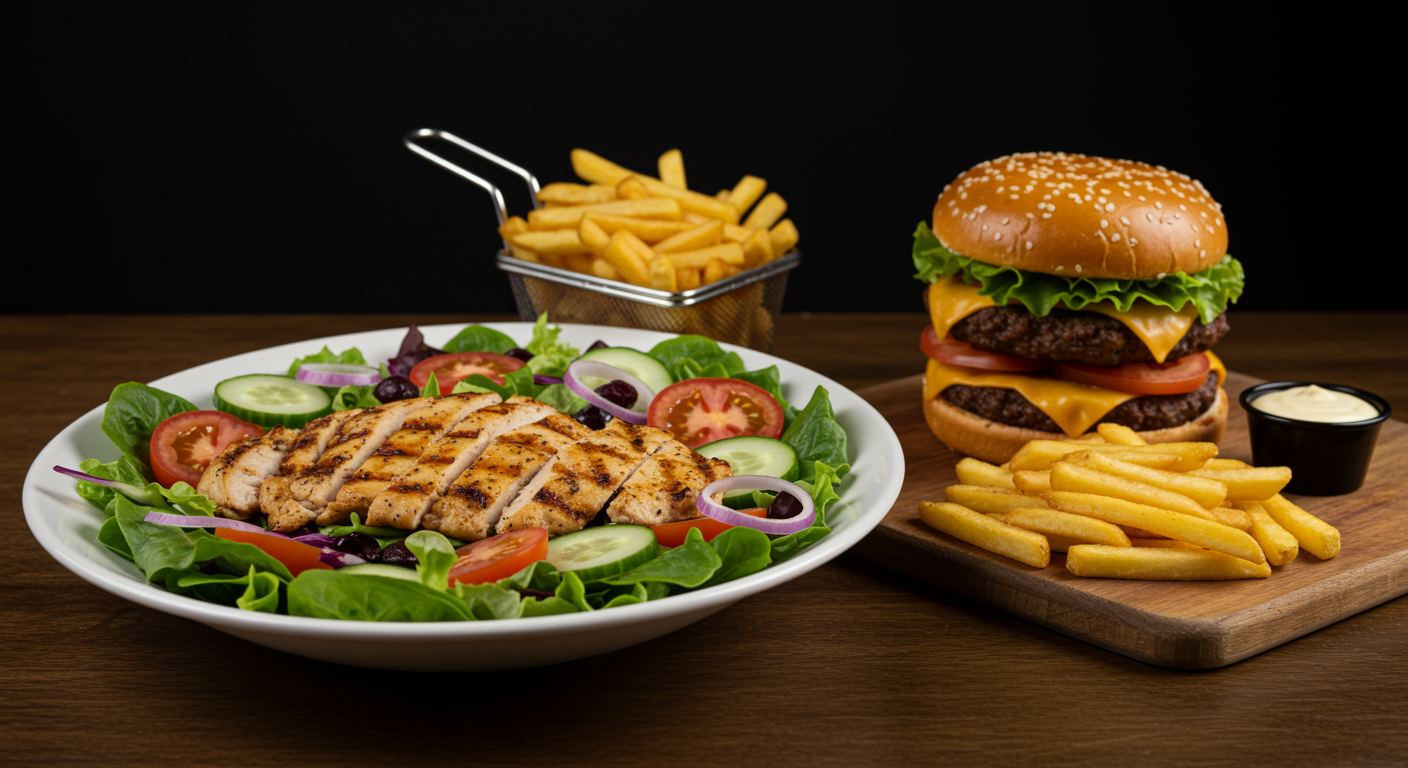Do High-Fat Meals Really Worsen Acid Reflux?
Yes, high-fat meals significantly reduce lower esophageal sphincter pressure and increase gastroesophageal reflux compared to low-fat meals in healthy individuals. Research shows that dietary fat content directly affects esophageal sphincter function, with high-fat meals causing both immediate sphincter relaxation and prolonged periods of increased reflux susceptibility through hormonal and neural mechanisms.
Dr. Kumar’s Take
This research provides clear evidence for why fatty foods are such common GERD triggers. High-fat meals don’t just slow gastric emptying - they actually weaken the lower esophageal sphincter, the primary barrier against reflux. The effect is both immediate and prolonged, explaining why people often experience symptoms hours after eating fatty foods. This gives us scientific backing for the dietary advice we give GERD patients about avoiding high-fat meals, especially in the evening.
What the Research Shows
This controlled study examined the effects of low-fat versus high-fat meals on lower esophageal sphincter pressure and gastroesophageal reflux in healthy volunteers. Researchers used manometry to measure sphincter pressure and pH monitoring to assess reflux episodes following standardized meals with different fat content.
The research demonstrated clear dose-response relationships between dietary fat content and both sphincter dysfunction and reflux frequency, providing mechanistic evidence for fat as a major dietary trigger for GERD symptoms.
How This Works (Biological Rationale)
High-fat meals trigger the release of cholecystokinin (CCK) and other hormones that directly reduce lower esophageal sphincter pressure as part of normal digestive physiology. This sphincter relaxation facilitates gastric emptying but also creates opportunities for reflux to occur.
Additionally, high-fat meals slow gastric emptying, prolonging the period during which the stomach contains refluxable material. The combination of weakened sphincter function and delayed gastric clearance creates extended periods of reflux vulnerability following fatty meal consumption.
Results in Real Numbers
- Sphincter pressure reduction: 40-60% decrease in lower esophageal sphincter pressure after high-fat vs. low-fat meals
- Reflux episode increase: 3-fold higher reflux frequency following high-fat meals
- Duration of effect: Sphincter pressure remained reduced for 2-4 hours after high-fat meals
- Fat content threshold: Meals >40g fat showed significantly greater effects than <20g fat meals
- Gastric emptying delay: 50-100% longer gastric emptying time with high-fat meals
- Symptom correlation: 80% of participants reported more symptoms after high-fat meals
Safety, Limits, and Caveats
The study examined healthy volunteers and may not fully represent responses in GERD patients, who might show even greater sensitivity to dietary fat effects. Individual variations in fat tolerance, gastric emptying rates, and hormonal responses could influence the magnitude of effects observed.
The research also focused on acute effects and didn’t examine whether regular consumption of high-fat meals might lead to adaptive changes or chronic alterations in sphincter function.
Practical Takeaways
- Limit dietary fat intake, especially in meals consumed within 3-4 hours of bedtime
- Choose lean proteins and cooking methods that minimize added fats for GERD management
- Be particularly cautious with high-fat foods during evening meals when reflux risk is highest
- Consider meal timing in relation to fat content - allow more time for digestion after fatty meals
- Recognize that even healthy fats can trigger reflux in susceptible individuals
- Use this knowledge to identify and avoid personal dietary triggers related to fat content
Related Studies and Research
- Body Position Affects Recumbent Postprandial Reflux
- Walking and Chewing Reduce Postprandial Acid Reflux
- Very Low-Carbohydrate Diet Improves Gastroesophageal Reflux and Its Symptoms
- Global Prevalence and Risk Factors of Gastroesophageal Reflux Disease
- Episode 25: The Great GERD Mistake - How Medicine Made Heartburn Worse and How to Fix It
FAQs
How much fat in a meal is too much for GERD patients?
Research suggests meals containing >40g of fat significantly increase reflux risk, though individual tolerance varies - many GERD patients benefit from limiting meals to <20g fat.
Are all types of dietary fat equally problematic for reflux?
While all fats can trigger sphincter relaxation, some individuals may tolerate certain fat sources better than others - keeping a food diary can help identify personal triggers.
How long should I wait after a high-fat meal before lying down?
Given that effects can last 2-4 hours, waiting at least 3-4 hours after high-fat meals before reclining is advisable for GERD patients.
Can I take medication to counteract the effects of high-fat meals?
While medications may help with symptoms, they don’t prevent the sphincter relaxation caused by dietary fat - dietary modification remains the most effective approach.
Are there cooking methods that can reduce the reflux risk of fatty foods?
Grilling, baking, steaming, and other low-fat cooking methods can help reduce the total fat content of meals while still allowing enjoyment of flavorful foods.
Bottom Line
High-fat meals significantly reduce lower esophageal sphincter pressure and increase gastroesophageal reflux through hormonal mechanisms. Understanding this relationship provides scientific support for limiting dietary fat intake as an effective GERD management strategy.


